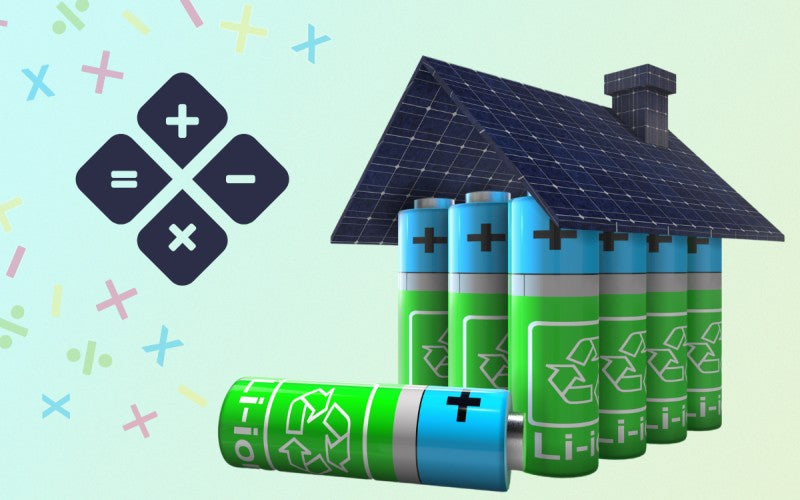
As solar energy gains popularity as a clean and renewable source of power, many homeowners are considering making the switch to solar installations to reduce their carbon footprint and save on energy costs. However, one of the most important decisions to make when setting up a solar energy system is choosing the right batteries. Deep cycle batteries play a crucial role in storing and utilizing solar energy efficiently. In this blog post, we will explore what deep cycle batteries are, their benefits, and whether they are necessary for your solar installation.
1. Understanding Solar Energy Storage
Before delving into the significance of deep cycle batteries, let's briefly touch on the concept of solar energy storage. Solar panels harness sunlight and convert it into electricity. However, the electricity generated by solar panels is often not used immediately. Instead, it needs to be stored for later use, especially during the nighttime or on cloudy days when the sun's power is limited.
2. Deep Cycle Batteries: The Backbone of Solar Energy Storage
Deep cycle batteries are specifically designed to store and discharge electrical energy in a repetitive cycle. Unlike regular car batteries designed for short bursts of power, deep cycle batteries are built to handle continuous charge and discharge cycles without degrading their performance.
These batteries consist of thicker lead plates and a unique electrolyte solution that allows them to withstand deep discharges and subsequent recharging. They come in various types, including lead-acid, lithium-ion, and saltwater batteries. Among these, lead-acid batteries are the most common and affordable option for residential solar installations, while lithium-ion batteries offer higher efficiency but come with a higher price tag.
3. The Benefits of Deep Cycle Batteries for Solar Energy Systems
Now that we have a basic understanding of deep cycle batteries let's explore why they are beneficial for solar energy systems:
3.1 Extended Storage Capacity
One of the primary advantages of deep cycle batteries is their ability to store a significant amount of energy. This ensures that you have a surplus of energy even on days when the sun's power output is low or during extended periods of cloud cover.
3.2 Maximizing Energy Independence
With deep cycle batteries, you can achieve a higher degree of energy independence. By storing excess solar energy, you become less reliant on the grid during nighttime or when solar production is insufficient, thereby reducing your overall electricity bills.
3.3 Protecting Against Power Outages
During power outages, homes with solar installations can continue to function if they have a battery backup. Deep cycle batteries act as a reliable backup power source, keeping essential appliances running during emergencies.
4. Is It Necessary for Your Solar Installation?
Now that you understand the advantages of deep cycle batteries, you might wonder if they are necessary for your solar installation. The answer depends on your energy needs and priorities.
4.1 Assessing Your Energy Consumption
Start by evaluating your energy consumption patterns. Consider the total energy your household consumes on an average day and compare it with the energy generated by your solar panels. If your solar panels produce more energy than you consume and you have net metering in your area, you might not need deep cycle batteries. In such cases, excess energy can be fed back into the grid and credited to your account, effectively acting as a "virtual" storage solution.
4.2 Energy Resilience
On the other hand, if you prioritize energy independence and resilience during power outages, deep cycle batteries are a valuable addition. They allow you to store excess energy for later use, reducing your reliance on the grid and providing a reliable backup power source during emergencies.
4.3 Financial Considerations
While deep cycle batteries offer numerous benefits, they come with an additional upfront cost. Before making a decision, calculate the overall cost of the battery system and compare it with the potential savings and benefits it would bring over its lifespan. If you live in an area with frequent power outages or high electricity rates, the investment in deep cycle batteries might be justified.
Conclusion
In conclusion, deep cycle batteries are an essential component of solar energy systems, offering extended storage capacity, energy independence, and protection against power outages. Their inclusion in your solar installation depends on your energy needs, priorities, and financial considerations. For those seeking energy resilience and independence, deep cycle batteries are undoubtedly a valuable investment.
When choosing batteries for your solar installation, consider the type, capacity, and lifespan that best suits your requirements. Always consult with reputable solar energy providers and seek professional advice to ensure that you make an informed decision.
Harnessing the power of solar energy not only benefits the environment but also empowers homeowners to take control of their energy consumption and contribute to a sustainable future.
Remember, every solar journey is unique, so don't hesitate to reach out to experts who can guide you towards a solar solution that fits your needs perfectly. Embrace the power of the sun and take the first step toward a greener, more sustainable lifestyle!

0 Kommentare